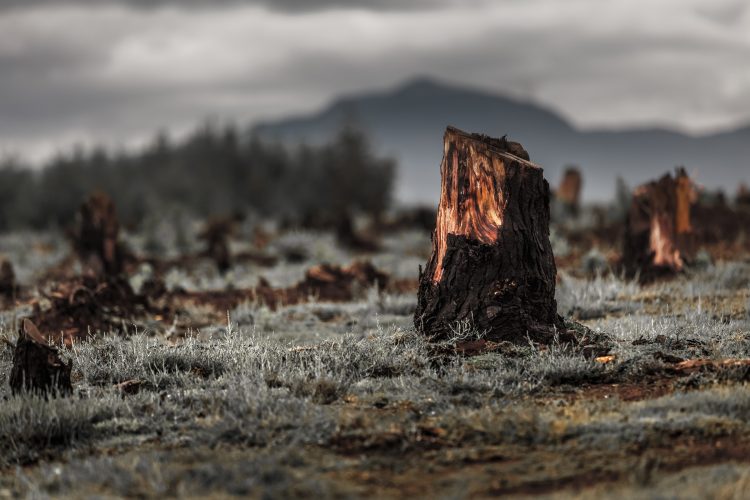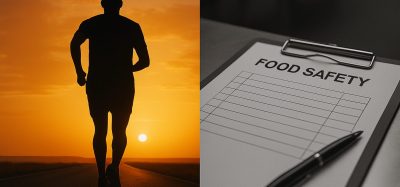The most important new food legislation for a generation?
- Like
- Digg
- Del
- Tumblr
- VKontakte
- Buffer
- Love This
- Odnoklassniki
- Meneame
- Blogger
- Amazon
- Yahoo Mail
- Gmail
- AOL
- Newsvine
- HackerNews
- Evernote
- MySpace
- Mail.ru
- Viadeo
- Line
- Comments
- Yummly
- SMS
- Viber
- Telegram
- Subscribe
- Skype
- Facebook Messenger
- Kakao
- LiveJournal
- Yammer
- Edgar
- Fintel
- Mix
- Instapaper
- Copy Link
Posted: 13 July 2023 | Professor Chris Elliott | No comments yet
Professor Chris Elliott reveals what he thinks is the most important piece of legislation for a long time is and explains its impact on the food and beverage sector.


A new law came into force very recently which has been debated and argued about for over a decade. It is likely to have a seismic impact on the global food supply system, a massive positive impact on climate change and is something that every food business should know about. Yet, with all the issues going at home and abroad, it hardly seemed to get a mention in the press.
Deforestation is second only to fossil fuels as a global source of greenhouse gas emissions fueling our climate crisis and wreaking havoc with planetary biodiversity. In fact, consumption in the EU is responsible for 10 percent of global deforestation.
However, on 29 June 2023, the EU Regulation on deforestation-free products came into force. This sets out to guarantee that the products EU citizens consume do not contribute to deforestation or forest degradation worldwide. The list of products this will affect is simply mind blowing. Here are just some of them: soya, beef, palm oil, wood, cocoa, coffee, rubber, leather, chocolate, tyres, furniture charcoal and printed paper products.
So what does the new law really mean? In essence, any business that sells any of these commodities into the EU market must be able to prove that the products did not originate from recently deforested land or have not contributed to forest degradation. For many years there have been voluntary schemes in place which have basically failed (and quite miserably too) to stop the flow of goods into Europe from threatened areas. Now things will change and change for the better.
The European Commission is now in the process of classifying countries into low, standard or high-risk categories. The penalties for breaching the regulations or even a lack of due diligence will be proportionate but also (as the Commission describes it) dissuasive. The maximum amount a fine has been set at is four percent of the total annual turnover in the EU of the non-compliant business. Furthermore, all products linked to deforestation must be withdrawn from the market. Add these together and we are talking about potentially dire consequences for any business, large or small, found to be guilty as charged. There is 18 months for everyone to get their act together.
Of course, an important question remains: will the UK follow suit? As the country steps back from more and more climate commitments the prospects are not good. Yet, we still trade with the EU despite all the self-imposed obstacles caused by Brexit, so few companies that use or sell any of the listed products should sleep easy. The potential to be linked to global deforestation or have major food product recalls and get caught up in fraudulent claims of provenance should keep most company boards on high alert.
At best, some companies think they have a reasonable knowledge of their supply chains but in reality, very few have these robustly mapped and appropriately policed. Many, and I include quite a few of the big ‘NGOs’ whose mission is to protect rainforests, rely on periodic and sometimes sporadic audits. These are, in my opinion, not fit for purpose.
But there are solutions to ensuring what is purchased and sold is not part of the global trade in products that are linked to deforestation. The digitisation of supply chains is hugely important and the verification of the data within these by cutting edge sampling and testing programmes are now achievable and being implemented by a small number of forward-thinking companies. Two years ago myself and my team from the Institute for Global Food Security embarked on a project to determine where soya actually came from. Our progress in this has been excellent and before the end of this year, we plan to make some exciting announcements about this. There are few reasons why other types of food and non-food materials can be traced in the same way. The main issues will be the complexity and costs involved.
But reading that some of the world’s big players in chocolate understand what is needed now, and their admission that this will involve additional costs to their business and that these costs might be passed on, is a telling sign of things to come.
If you found this article informative and engaging, then we have a special invitation for you. Join us at our upcoming event Food Integrity Global, where we dive deeper into the topics discussed here, providing a platform for stimulating conversations and networking opportunities. Experience first-hand the excitement of being part of a dynamic food & bev community passionate about shaping the future of food integrity, safety, and sustainability.
Mark your calendar and be prepared to be inspired. We look forward to welcoming you to an unforgettable event that will leave you with valuable insights and a renewed enthusiasm for the subjects that matter most to you.
Food Integrity Global
17-18 October 2023
Topics covered include: Food safety, Diversity, Food fraud, Sustainability, Microbiology and Labelling
Related topics
Food Safety, Food Security, Regulation & Legislation, Sustainability









